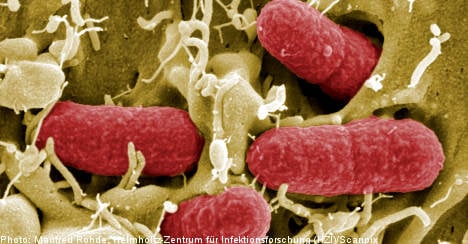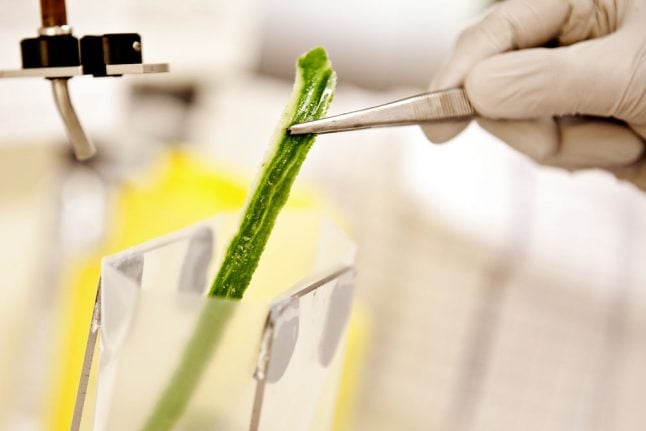So far, 46 Swedes have been infected with and all of them are believed to have been infected while visiting Germany.
Of the Swedes suffering from EHEC, 15 have been diagnosed with the serious complication haemolytic-uremic syndrome (HUS), including a woman from Borås who died on Tuesday.
On Thursday, another person in Germany died after being infected by EHEC, according to the AFP news agency, marking the 18th fatality since the outbreak began.
More than 2,000 people in ten European countries have reported being sickened by the bacteria in the last month.
At the same time, officials at the World Health Organisation (WHO) believe the current wave of EHEC infections involves a strain unseen in any previous outbreak.
“This strain has never been seen in an outbreak situation before,” said WHO spokesperson Aphaluck Bhatiasevi, according to the Reuters news agency.
The European Centre for Disease Prevention and Control (ECDC) has said that it has identified the strain and confirmed that it’s a very rare.
The ECDC emphasised as well that the source of the outbreak remains unknown. Initially, health authorities in Germany had thought that cucumbers from Spain were to blame.
While the risk of the disease spreading further in Sweden is thought to be small, the infectious disease division of the city of Gothenburg in western Sweden believes that there will be a continued rise in the number of reported cases of Swedes infected with EHEC as more and more people go to get tested.
“But also because a number of travelers will be returning from Germany,” said infectious diseases doctor Leif Dotevall to the TT news agency.
A woman in hospital in Jönköping in central Sweden remains in very serious condition, as do three people receiving care at Gothenburg’s Sahlgrenska hospital.
Another person has been placed in the intensive care ward of a hospital in Varberg in western Sweden.
Meanwhile, Russia announced on Thursday it was stopping the import of fresh vegetables from all EU member states in the wake of the EHEC outbreak.
But the hunt for the source of the outbreak is still going on and on Friday authorities announced that meat will now also be tested.
According to Lars Plym Forsell at the Swedish Institute for Communicable Disease Control (Smittskyddsinstitutet), although the focus is still on tomatoes, cucumber and lettuce, scientists are now starting to test other products, including meat products.
“And of course they are still continuing to interview those that have been taken ill to zone in on what they have in common,” Plym Forsell told Sveriges Radio (SR) on Friday.



 Please whitelist us to continue reading.
Please whitelist us to continue reading.
Member comments